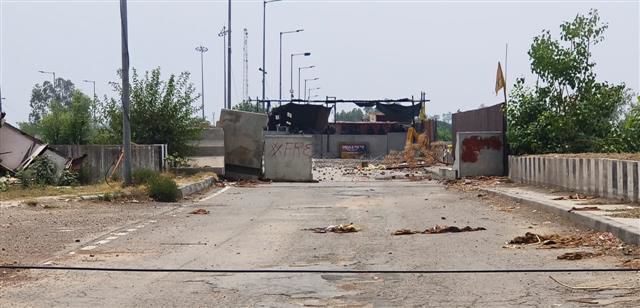THE Punjab and Haryana High Court’s order to remove barricades at the Shambhu border marks a significant moment in the ongoing protests by farmers. For over five months, the blockade, set up by the Haryana Government, has caused severe inconvenience to commuters, disrupted local businesses and ignited widespread public frustration. This court order represents a critical step towards restoring normalcy and addressing the grievances of both the protesting farmers and the affected residents. The ruling underscores the importance of balancing the right to peaceful protest with the need to maintaining public order and accessibility. The blockade, which began as a measure to prevent farmers from advancing towards Delhi, had escalated into a roadblock for ordinary citizens. The HC directive to Punjab and Haryana to coordinate the removal of the barriers highlights a judicial acknowledgment of the hardship imposed on the public.
For the protesting farmers, this ruling is a validation of their stance. As one farmer leader pointed out, the order reveals that the barricades were a state-imposed restriction. This distinction is crucial for altering public perception and countering the narrative that farmers were responsible for the blockade. The Samyukt Kisan Morcha’s plan to discuss their next move shows a continued commitment to peaceful advocacy of their demands.
As the barricades come down and normal traffic resumes, traders in Ambala, who faced losses due to reduced customer flow, hope for a turn towards economic recovery. Even as both state governments must facilitate a smooth transition, the farmers should ensure that their next steps do not lead to any escalation. This episode highlights the delicate balance required in handling public protests and the need for solutions that respect both civil liberties and public welfare. Dialogue remains the most effective path to resolution.









